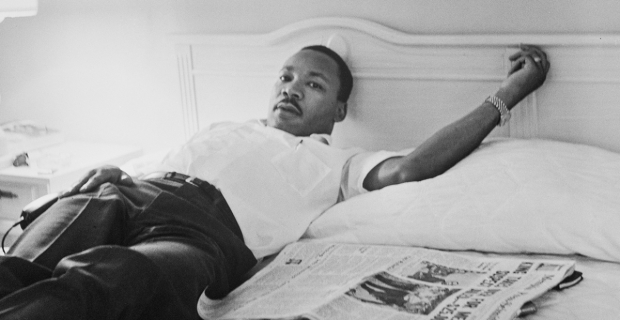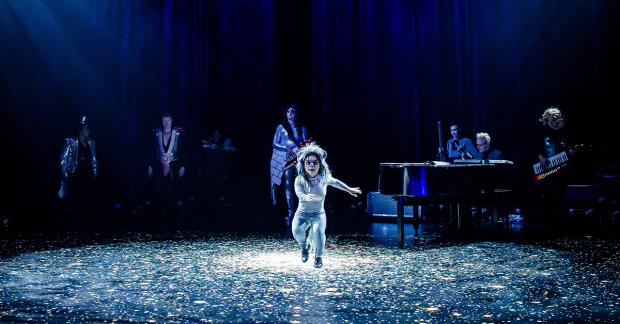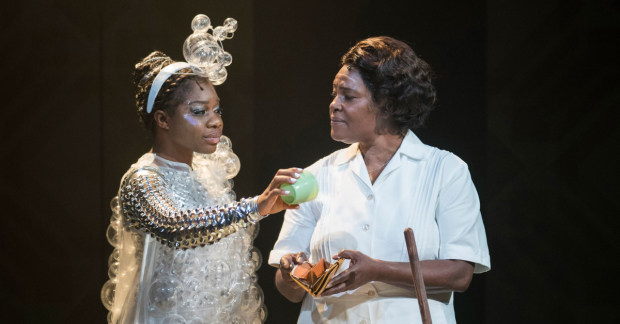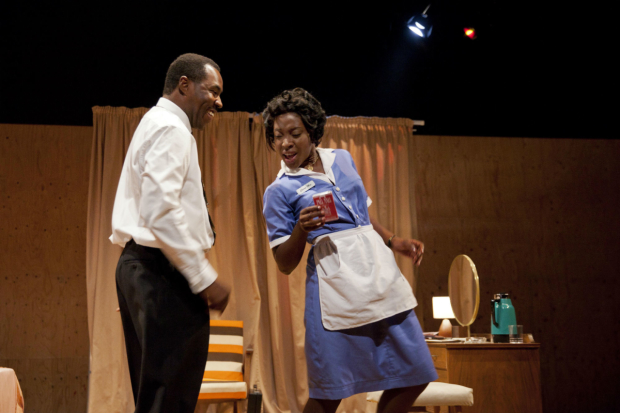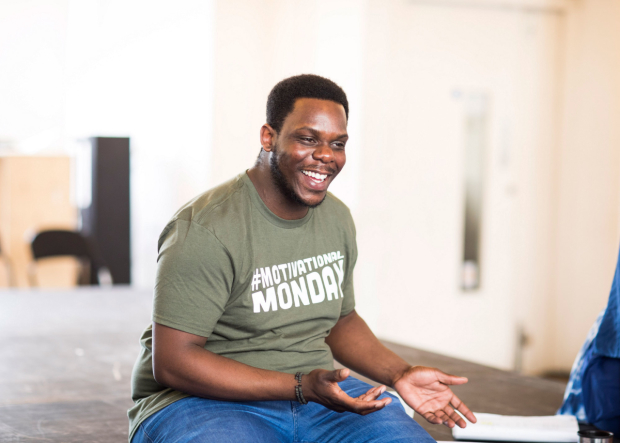Review: The Mountaintop (NST City, Nuffield Southampton Theatres)
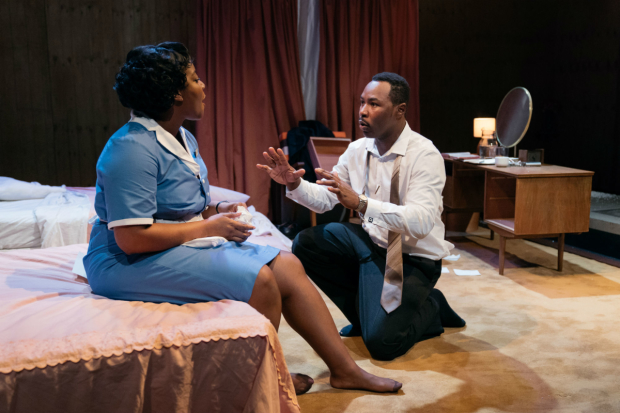
(© Helen Murray)
He was an activist. He was a husband. He was a hero. He was a martyr. He was also simply a man. Katori Hall's play The Mountaintop, imagines Martin Luther King in his most vulnerable moment – the night before his assassination. Set during the height of the Civil Rights Movement, with the shadow of his death looming over him, King (Gbolahan Obisesan) retires to a hotel room, where he is visited by a high-spirited maid named Camae (Rochelle Rose). As the play unfolds, their conversations force King to confront his deepest anxieties and to discover just how mortal he really is.
Directed by Roy Alexander Weise, the Olivier Award-winning play embarks on a UK tour from the new Nuffield Southampton City Theatre. The show is well contained within Rajha Shakiry's simple yet effective design – two beds, a desk, some desk lamps, walls made of wooden panelling and a curtain rail which overlooks the hotel room. We are greeted with Camae bopping her head to Childish Gambino's "This is America", a powerful piece of music released earlier this year which focuses on racism towards African Americans. Perhaps unsurprisingly, there's nothing jarring about the appearance of this track in the '60s setting – with the Civil Rights Movement in full swing – and it develops one of the show's core themes about how past and present speak to each other.
When Camae arrives at King's hotel room, King is floored by her beauty and convinces her to stay and smoke with him. Yet there's a plot twist surrounding Camae's motives, allowing the play to move from its initial two-strangers-converse-about-life-and-death-in-a-closed-setting premise. Hall provides sobering commentary on racism, human weakness and riot behaviour. Through King, she asks us to consider that mankind is united by a fear of being out of control. It's easy to relate to these flawed characters – everybody has dreams they are desperate to achieve and this play forces us to consider that perhaps we are not really in control of anything. God – is he (or she) in charge? – looms large over the piece, especially when King speaks to him on the telephone, a scene that is performed hilariously by Obisesan.
Rose steals the show in the final five minutes. Supported by projections of pivotal moments in American history, she lays an impressive black legacy before us. She performs an impassioned speech, a kind of list of events and people beginning with Martin Luther King's death and racing through to Ruby Bridges (the first black student to segregate an elementary school in Louisiana), to Tupac, to the "I'm Black and Proud" movement and finally, Barack Obama's presidency. The speech is almost as memorable as one of King's. We are urged to "pick up the baton" and continue the fight.
Obisesan and Rose do an incredible job of telling such a huge story. It's a gorgeous show which urgently reminds us of our responsibilities as citizens today.



